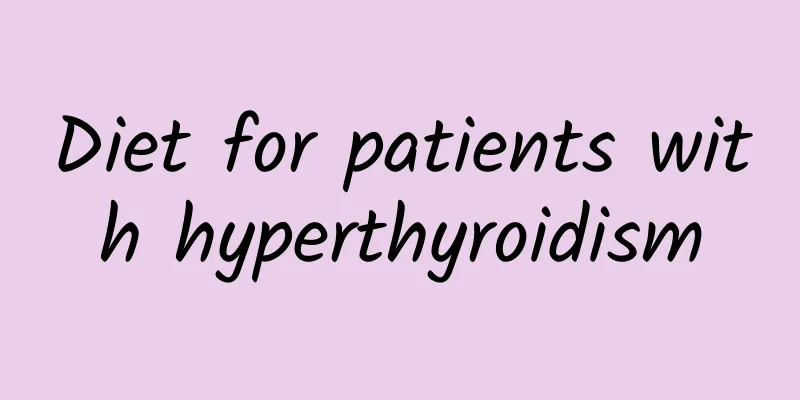Diet for patients with hyperthyroidism

|
As we all know, once someone is infected with hyperthyroidism, the nutrients in his body will be quickly broken down due to the accelerated metabolism of protein, causing malnutrition in the patient. Therefore, patients with hyperthyroidism generally appear to be thin. In order to help patients with hyperthyroidism regain a healthy body, their daily diet needs to be fully nutritionally adjusted.
Therefore, this requires hyperthyroidism patients to reasonably match their diet in their daily diet, so as to help cure the disease of hyperthyroidism. Please see the following description for the specific methods of dietary conditioning for hyperthyroidism patients and some matters that need attention. Diet for patients with hyperthyroidism Steps/Methods The purpose of proper supplementation of the three highs is to meet the protein and calorie needs of hyperthyroidism patients. This requires the patient to eat every meal well and, if necessary, take 1 to 3 extra meals to prevent hunger. The main source of heat energy is carbohydrates (i.e. cereals, rice and noodles), and fat food should not be consumed too much; protein sources can be eggs, meat, fish, shrimp and beans, but the latter two should be the main ones, accounting for more than 60%; pay attention to supplementing vitamin A, vitamin C and vitamin B. Fresh vegetables and fruits contain the most these vitamins. Eating 500 grams of fresh vegetables and about 100 grams of fresh fruit every day can meet the body's needs. Because patients have high metabolic rates, the circulation of calcium and phosphorus in the bones is accelerated. If they are not supplemented, it is easy to cause osteoporosis and even induce fractures. Therefore, patients should pay attention to the intake of foods rich in calcium and phosphorus. You should drink at least 500 grams of milk every day, and add foods rich in calcium and phosphorus, such as beans, dried shrimps, egg yolks, black fungus, etc., to your side dishes. You can also eat peanuts, sunflower seeds, walnut kernels, etc. as snacks to increase the intake of calcium and phosphorus and prevent osteoporosis. In addition, it is worth noting that if the food contains too much iodine, it may induce or aggravate hyperthyroidism. Therefore, patients should pay attention to limiting the intake of iodine-containing foods. First of all, limit excessive salt intake. Most of the salt available on the market is iodized salt. Therefore, the daily salt intake should be limited to no more than 8 grams. Therefore, patients with hyperthyroidism should eat less seafood and other foods high in iodine. After reading the analysis of the relevant content about dietary conditioning for patients with hyperthyroidism in this article, I believe that patients with hyperthyroidism have realized the importance of dietary conditioning for hyperthyroidism. I hope that patients with hyperthyroidism can adjust their daily diet according to the content of this article after reading it. At the same time, I wish patients with hyperthyroidism a speedy recovery. |
>>: How to consume American ginseng
Recommend
Can taking Chinese medicine really make your breasts bigger?
Breast enhancement with Chinese medicine is quite...
Why do I feel a dull pain in my lower abdomen after medical abortion?
After medical abortion, there may be a dull pain ...
What to do if you keep suffering from insomnia
Insomnia is very harmful to human health. If you ...
What to do if you have asthma
Asthma is a common disease among humans, and in r...
Emphysema precautions
Emphysema refers to a pathological state in which...
The baby has a fever for three consecutive days
Compared with adults, babies' resistance is f...
Are red dots a sign of stretch marks?
For pregnant women, they are still quite worried ...
Geranium for rheumatoid arthritis
Geranium was first recorded in the "Compendi...
The efficacy and function of barley teeth
People should not be unfamiliar with barley malt....
What causes adult encephalitis? What are the symptoms?
Encephalitis is a general term for inflammatory d...
Can wild lilies be eaten?
Wild lily is a kind of plant medicine. It usually...
What causes bilateral lumbar pain?
Lumbar pain on both sides is actually a symptom o...
What will happen if you have sex right after your period?
When women enter puberty, under normal circumstan...
What is the cause of the abscess on the child's head?
Many children will develop pustules on the top of...
How to treat abnormal kidney function
Abnormal renal function has a great impact on hea...









